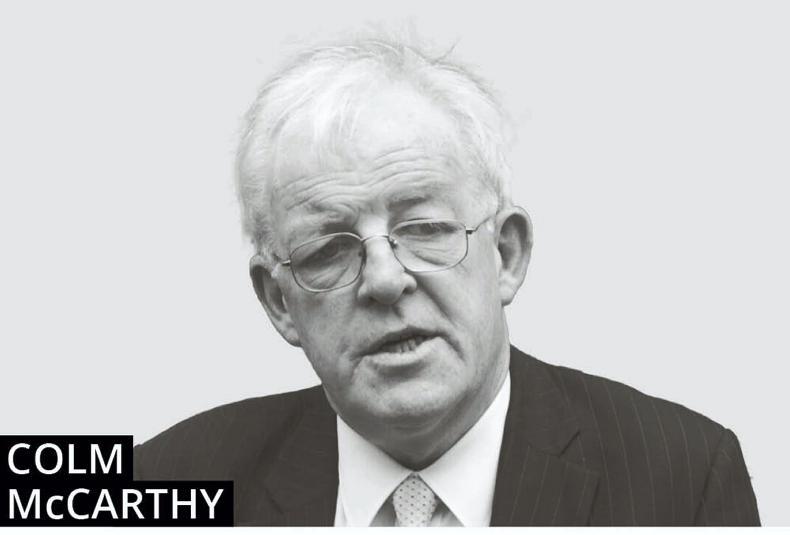Despite having one of the lowest statutory retirement ages in Europe, France is convulsed with strikes and demonstrations against government proposals to raise the qualifying age for state pensions from 62 to 64 over the next seven years.
The threshold in Ireland is already 66 and many European countries with higher figures than France plan to increase them further.
What matters for the affordability of state pensions is life expectancy at the retirement age, and the French are fortunate: on the day of retirement, both men and women can expect to survive longer than their counterparts elsewhere.
The system is slowly going bust and the alternatives are either a higher retirement age or a sharp increase in social insurance rates to pay the costs.
If the electorate consisted of demographic experts and actuaries, this would be readily understood without any need for political explanation.
While voters around Europe have become distrustful of politicians, especially when imparting bad news, the reaction in France is exceptional. Television interviews with passionate demonstrators at least 40 years away from retirement are difficult to comprehend.
Emmanuel Macron
But the anger with French president Emmanuel Macron is real and follows nationwide demonstrations at the end of 2018 against proposals to raise taxes on petrol and diesel. These protests too (dubbed the ‘yellow vests’ movement) were puzzling to outside observers because the tax increases were modest enough – about 3c/ltr on petrol and 6c/ltr on diesel.
It is unlikely that they would have provoked a national insurrection anywhere else in Europe. Macron backed down and the excise hike was scrapped.
Everyone grumbles about higher retirement ages and nobody welcomes extra taxes to keep them low, but only in France do the laws of arithmetic drive people to the barricades. Why are the French on the streets again?
Macron sometimes sounds like an actuary in his public explanations of the pensions policy, and his demeanour is criticised as distant – detached from ordinary voters.
But this criticism is nowadays levelled at democratic leaders everywhere and there is nothing unique about Macron. What is unique is the French constitution, which provides for an executive presidency closer to the American model.
Democracy
The French president possesses unusual powers and parliament fewer powers than in other European countries. As in Ireland, their constitutions provide for a ceremonial head of state (or a monarch) not engaged in active politics.
Emmanuel Macron is not just president; he appoints the cabinet (including the prime minister), can dissolve parliament and leads a political party that may not always command a parliamentary majority.
There is a constitutional provision in France that allows any opposition to the president’s policies by a majority of elected deputies to be ignored. France is a democracy, but it is not a parliamentary democracy as the term is understood elsewhere.
Fifth Republic of France
The Fifth Republic (the first ended the monarchy in 1792) dates from 1958, and arose in exceptional circumstances. France’s Fourth Republic was destabilised by the independence struggle in Algeria; jewel of the African empire.
The national saviour was Charles de Gaulle, who faced down a potential civil war, including a conspiracy in the armed forces.
An attempted coup by the army in Algeria led to the dissolution of parliament and de Gaulle secured approval from 80% of voters for a new constitution, inaugurating the Fifth Republic. His constitutional construct has regularly been revised, but the executive presidency survives – the feature that distinguishes France from its European neighbours.
France was not the only western European country to have sought – after the allies secured the defeat of Germany, Italy and Japan at the end of World War II – to hold on to its empire outside of Europe.
Britain, Belgium and the Netherlands also resisted decolonisation for a time, but the abandonment of France’s empire has cast the longest shadow.






 This is a subscriber-only article
This is a subscriber-only article










SHARING OPTIONS: